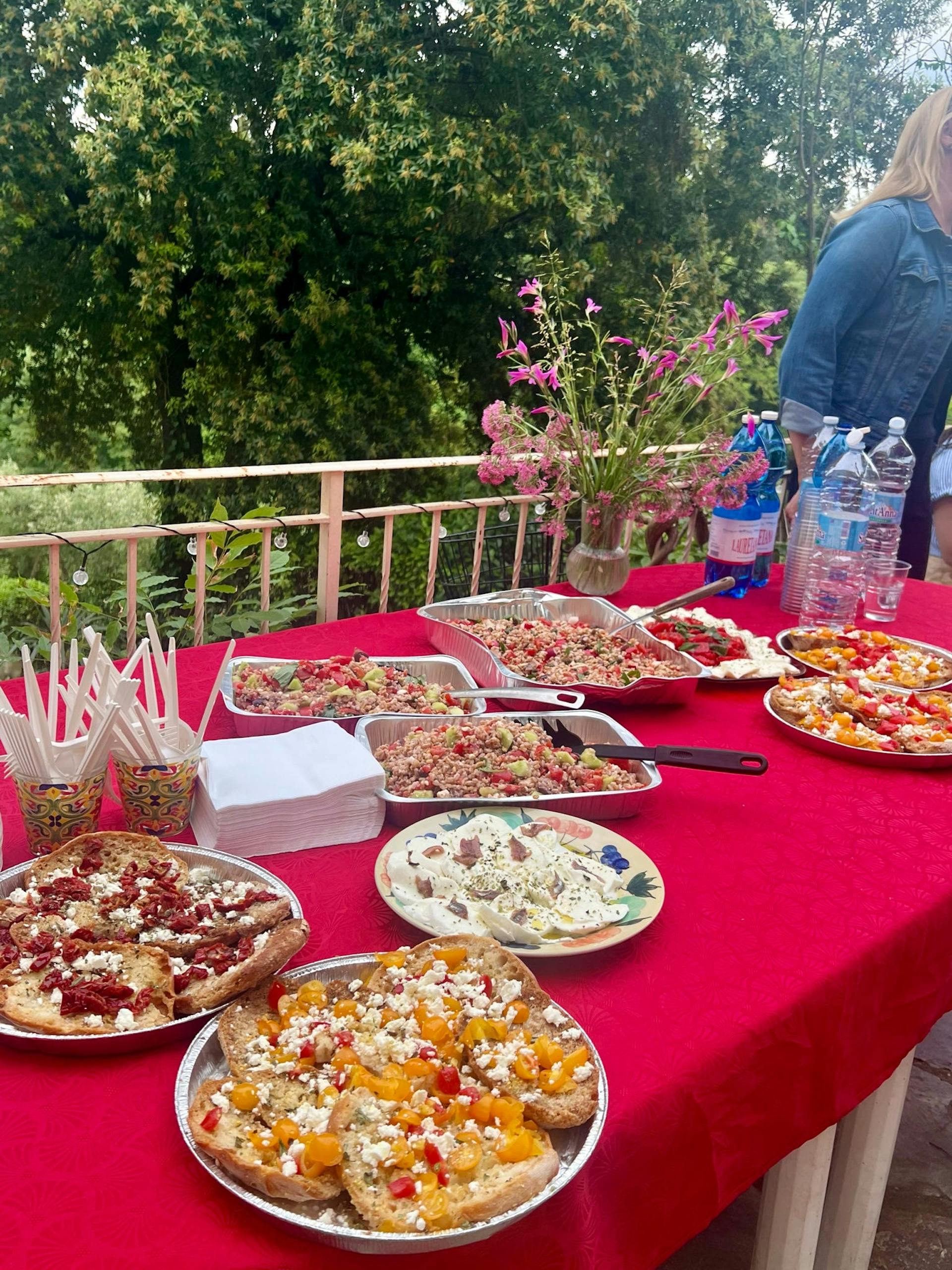The Mediterranean diet isn’t solely about the foods consumed; it’s a holistic lifestyle encompassing social interaction, physical activity, rest, and a strong connection to culture and food. According to UNESCO, the Mediterranean diet involves a set of skills, knowledge, rituals, symbols, and traditions concerning crops, harvesting, fishing, animal husbandry, conservation, processing, cooking, and particularly, the sharing and consumption of food. UNESCO recognizes the Mediterranean diet as an “Intangible Cultural Heritage of Humanity,” highlighting its cultural and social significance beyond its nutritional aspects. For example, the emphasis on conviviality creates a moment of social exchange and communication, providing an affirmation and renewal of family, group, or community identity. The Mediterranean diet emphasizes values of hospitality, neighborliness, intercultural dialogue, creativity, and a way of life guided by respect for diversity contributing to a person’s overall well-being.
Social Connection and Well-Being
 The socioemotional selectivity theory (SST), states that as people perceive their remaining time as finite, they become more selective in their social interactions. This leads individuals to start prioritizing emotionally meaningful relationships and activities that bring them immediate happiness rather than focusing on future goals. This is profoundly displayed in the Mediterranean diet through the focus on being present during meals. The link present between SST and the diet’s social dimensions contributes to enhanced gut, cardiovascular, and mental well-being, as well as reduced stress and anxiety.
The socioemotional selectivity theory (SST), states that as people perceive their remaining time as finite, they become more selective in their social interactions. This leads individuals to start prioritizing emotionally meaningful relationships and activities that bring them immediate happiness rather than focusing on future goals. This is profoundly displayed in the Mediterranean diet through the focus on being present during meals. The link present between SST and the diet’s social dimensions contributes to enhanced gut, cardiovascular, and mental well-being, as well as reduced stress and anxiety.
When looking at the physical health benefits, research points to the Mediterranean diet’s social aspects that promote enhanced gut and cardiovascular health. According to the Olive Wellness Institute, there are positive associations between sharing meals, better physical health, and mental wellbeing. The social eating provided by the diet fosters connection and slower eating, which may support digestion, minimizing bloating and other gut discomforts. According to the American Heart Association, the Mediterranean diet helps protect against cardiovascular disease, lowering the risk for heart attacks and strokes. The Mediterranean lifestyle involves interactions with others, a component that is particularly important for people as they age. Studies have shown social isolation may increase a person’s risk of having or dying from a heart attack or stroke.
Not only are the social components important for one’s physical health (especially as a person ages), but the diet also provides neurological/mental health benefits as well. The Olive Wellness Institute discusses how the social connections formed through shared meals and cooking can enhance general well-being and aid in mental health recovery. The act of eating with others and longer mealtimes, both integral to the Mediterranean lifestyle, are linked to reduced stress. The reduced stress leads to an improved mental state and allows for improved body function.
Physical Activity as an Integral Component
The activity theory discusses or explores how older adults who remain socially and physically active and engage in meaningful activities tend to experience greater life satisfaction and well-being. In alignment with the activity theory, the diet encourages regular physical activity that aligns with the Mediterranean lifestyle. The inhabitants of the Mediterranean are active continuously and moderately throughout the day, through simple activities such as walking, gardening, swimming, and even dancing. This allows physical movement to be woven seamlessly into their daily routines.
The special combination between the Mediterranean diet and Mediterranean physical activity patterns results in several health benefits for preventing and treating non-communicable diseases (NCD). According to the National Institute of Health, combining the Mediterranean diet with physical activity increases a person’s life expectancy. The regular intake of foods rich in antioxidant and anti-inflammatory molecules can hinder the onset of several diseases. Combining these foods with physical activity reduces a person’s risk of coronary disease, non-alcoholic fatty liver disease, rheumatoid arthritis, and many other conditions. Evidence from many studies performed across different countries indicates that a Mediterranean diet and physical activity can efficiently prevent and control the onset of NCDs and promote healthy aging.
Mental Health Benefits Beyond Social Connection
 The Mediterranean diet is widely recognized for its benefits to overall health, including its significant role in maintaining good brain function. Beyond physical well-being, this dietary pattern has a crucial impact on mental health with research suggesting a lower incidence of depression and preserved cognitive function among its adherents.
The Mediterranean diet is widely recognized for its benefits to overall health, including its significant role in maintaining good brain function. Beyond physical well-being, this dietary pattern has a crucial impact on mental health with research suggesting a lower incidence of depression and preserved cognitive function among its adherents.
A recent study published in the British Journal of Nutrition highlights the Mediterranean diet’s positive effect on depression in older women. Considering that the World Health Organization (WHO) estimates depression affects about 5.7 percent of adults over 60 and is 50 percent more common in women, these findings are particularly significant. The study revealed that older women who adhered most closely to the Mediterranean diet were approximately 60 percent less likely to experience depression.
One key reason for the Mediterranean diet’s benefits is its high content of antioxidants from fruits and vegetables. These compounds help protect brain cells from damage, which is especially important in conditions like Alzheimer’s disease. This protective effect may contribute to maintaining memory and thinking skills. Furthermore, research from the National Institute of Health (NIH) indicates that greater adherence to the Mediterranean diet is associated with increased positive affect, reduced negative affect, and improved cognitive clarity. Across a large, nationally representative population of older adults, consistent adherence to this diet was independently linked to better cognitive function and a lower risk of cognitive impairment.
Implementing the Mediterranean Diet and Lifestyle in Your Life
 The Mediterranean lifestyle is a holistic approach to well-being that encompasses healthy eating, regular physical activity, strong social connections, and mindfulness. At its core is the Mediterranean diet, which emphasizes plant-based foods like fruits, vegetables, whole grains, and legumes. Healthy fats, particularly olive oil, are favored, and fish is consumed regularly, while red meat and processed foods are limited.
The Mediterranean lifestyle is a holistic approach to well-being that encompasses healthy eating, regular physical activity, strong social connections, and mindfulness. At its core is the Mediterranean diet, which emphasizes plant-based foods like fruits, vegetables, whole grains, and legumes. Healthy fats, particularly olive oil, are favored, and fish is consumed regularly, while red meat and processed foods are limited.
In addition to diet, a key component of the Mediterranean lifestyle is incorporating physical activity into daily life through natural movement and enjoyable exercise. Social connections are also prioritized through sharing meals with loved ones, building strong relationships, and engaging in community activities — all of which promote well-being.
Furthermore, the Mediterranean lifestyle encourages mindfulness and stress reduction through mindful eating, relaxation practices, and cultivating gratitude. Finally, embracing a slower pace of life, prioritizing experiences, and focusing on quality over quantity are important aspects of the lifestyle. This approach to life is a journey, and adopting these principles gradually can lead to a healthier and more fulfilling life.
Podvorec is a guest blogger at UITAC Publishing. UITAC’s mission is to provide high-quality, affordable, and socially responsible online course materials.
Images used in this blog:
- “Italian Family Dinner Spread” by Emma Podvorec on Pexels licensed under the Creative Commons Zero (CC0) license. This image has been cropped.
- “Aperol and Hugo Spritz Cheers” by Emma Podvorec on Pexels licensed under the Creative Commons Zero (CC0) license. This image has not been altered.
- “People in St. Peter’s Square” by Pixabay on Pexels licensed under the Creative Commons Zero (CC0) license. This image has not been altered.
- “Positive women having fun cooking pizza” by Katerina Holmes on Pexels licensed under the Creative Commons Zero (CC0) license. This image has not been altered.



